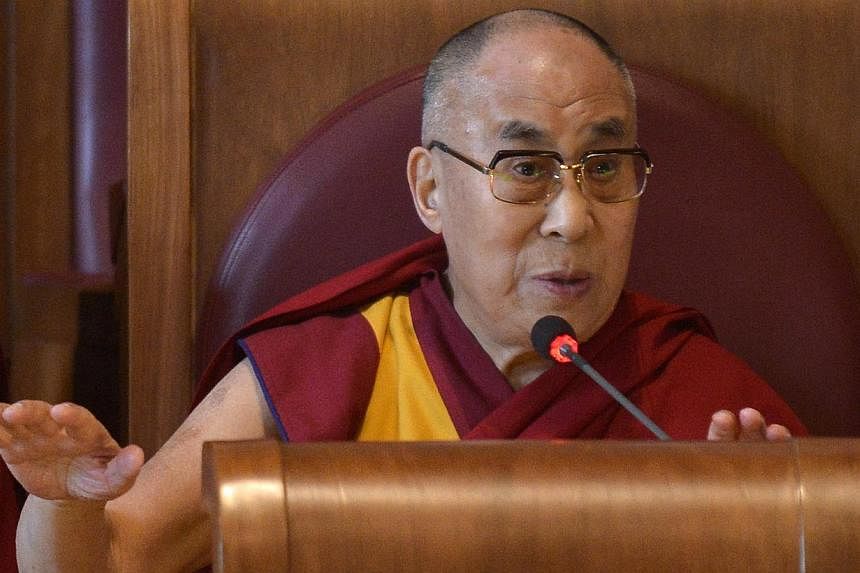NEW DELHI (AFP) - The Dalai Lama has said the world has a "moral responsibility" to push for democracy and rule of law in China.
But he said seeking closer ties with the world's second-largest economy was a "realistic" policy for cash-strapped Western nations such as Britain.
"Free world have moral responsibility to bring China to mainstream of democracy... Chinese people also want that," the exiled Tibetan spiritual leader told the BBC in an interview broadcast Tuesday.
"I think the free world have certain responsibility to stand firm. Democracy. Rule of law. And free press or free information. These things."
The Dalai Lama said he understood why some Western leaders cultivated closer ties with Beijing, saying the British government's pockets were "more or less empty". "So they very much want closeness with China for money reason. They are also realistic."
Britain's relations with China were soured when Prime Minister David Cameron met the Dalai Lama in 2012, and London has been seeking to undo the damage.
The 14th Dalai Lama fled Tibet in 1959 after a failed uprising against Chinese rule and has lived in exile in India ever since.
Asked whether he would be the last Dalai Lama, the 79-year-old Buddhist monk said that would depend on the circumstances.
"The Dalai Lama institution will cease one day," he said.
"Some stupid Dalai Lama comes and disgraces himself or herself - that is very sad. So much better that a centuries-old tradition cease at the time of a popular Dalai Lama." Under Tibetan tradition, monks identify a young boy who shows signs he is a reincarnation of a late leader.
But Tibetan Buddhists fear Chinese authorities may seek to impose their choice of spiritual leader.
This happened in 1995 when Beijing rejected the Dalai Lama's choice to be the next Panchen Lama, the second-highest ranking Tibetan Buddhist, and picked its own reincarnation.

